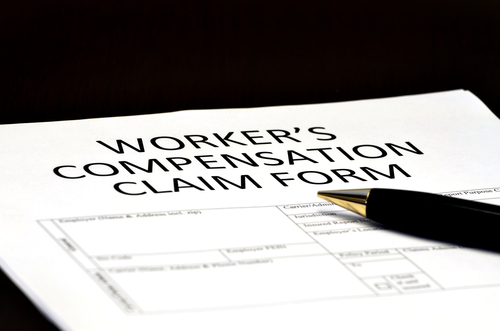

Workers’ Compensation: How to Get Medical Expenses Paid
by Kara Dolan-West | Feb 08, 2022 | Workers' Compensation
If you have been injured on the job or suffer from an occupational disease, you most likely will need to see a doctor and need medication to help with your injury or occupational disease. That said, how do you go about getting your medical bills and prescriptions paid for by the Ohio Bureau of Workers’ Compensation (BWC)? Like most things involving the BWC, you must follow a specific set of rules.
Medical Bill Payment Under Your BWC Workers’ Compensation Claim
Follow the set of procedures during your initial visit, after your visit, and for any follow-up visits to ensure that your medical bills will be covered as a part of your workers’ compensation claim through the BWC.
Initial Medical Visit /Emergency Visit
If you endure a work-related injury, you can visit a medical provider, hospital, or urgent care of your choosing to ensure that you get necessary and immediate medical treatment. Just be sure to tell the medical provider, hospital, or urgent care that you are being treated for a work-related injury and provide them with the name of your employer’s Managed Care Organization (MCO).
After Initial Medical Visit /Emergency Visit
After your initial visit, either you, your medical provider, or your employer must file a compensation claim through the BWC. This document is called a “First Report of Injury,” commonly referred to as the “FROI-1.” Once the BWC receives this document, they will send you a BWC ID card containing your claim number and the name of your employer’s MCO. Note that your employer’s MCO manages the medical portion of the claim, which includes medical treatment, surgery approvals, payment of medical bills, and rehab referrals.
Next, select a medical provider who is a “BWC Certified Medical Provider” as your Physician of Record (POR) for your claim. If your primary care physician is already a BWC Certified Medical Provider, you can continue approved medical care with them at no cost to you, including no co-pays or deductibles. If your medical provider is not a BWC Certified Medical Provider, you may be responsible for the payment of medical bills. You can obtain a list of approved providers from your employer or the BWC.
Follow-Up Visits
At your next medical appointment provide your POR with your BWC ID card that contains your claim number and the name of your MCO. They will need this information to provide to your MCO for reimbursement of treatment. Your POR will request authorization for all medical treatments from your MCO. For diagnostic testing or surgery, your medical provider will need to submit a Form C-9 “Physician’s Request for Medical Service Reimbursement or Recommendation for Additional Conditions for Industrial Injury or Occupational Disease” to your MCO for pre-approval. You will receive a letter from the MCO telling you whether the requested treatment has been approved or denied. If your medical treatment or medication has not been approved, or you have received a denial, you may need the help of legal counsel to fight for coverage.
Medical Payments for Additional Conditions Under Your BWC Workers’ Compensation Claim
Sometimes your POR will need to request an additional condition be added to your claim by submitting the same Form C-9 as mentioned above. The other condition must fall within the BWC guidelines before any further medical treatment or testing is approved or paid. You and your employer have the right to appeal decisions made by your MCO or the BWC.
Prescription Coverage Under Your BWC Workers’ Compensation Claim
For your prescription coverage under your BWC claim, they must meet the following conditions:
- First, the medications must be on the BWC’s Pre-Approved List of Medications.
- The drug must be approved for your allowed condition(s).
- You must use a BWC Certified Pharmacy.
- Your claim must be allowed.
If you need a prescription filled before your claim is allowed, you can use the “First Fill Program.” It enables you to fill a 10-day supply of your medication before your claim is allowed or before you have a BWC claim number. Tell the pharmacy your prescription is for an Ohio Workers’ Compensation claim and provide your Social Security number and date of injury. They will include this information when they submit the request.
Once your claim is allowed, take your prescriptions to any BWC Certified Pharmacy with your claim number, and they will bill the BWC’s Pharmacy Benefits Manager (PBM) directly.
Generic medications are included in the BWC’s Pre-Approved List of Medicatications. However, similar to health insurance coverage, if your provider prescribes a name-brand medication over a generic, you may have to pay part of the cost.
If your medication coverage is denied, contact an attorney for assistance with the appeal process.
Reimbursement for Prescriptions You Paid for Out-of-Pocket
There are two ways to get reimbursed for prescriptions you paid for out-of-pocket:
- Ask your pharmacist to resubmit your prescription to the BWC’s PBM. The PBM will then pay your pharmacy the allowed amount for the medication, and the pharmacy will reimburse you.
- Submit a “Request for Injured Worker Outpatient Medication Reimbursement Form,” Form C-17, along with your prescription label and the amount you paid for the prescription to the BWC.
Contact The Bainbridge Firm for Help With Your Workers’ Compensation Claim
At The Bainbridge Firm, LLC, our Columbus workers’ compensation lawyers are here to help. For more than 50 years, our firm of skilled and knowledgeable workers’ compensation, social security, and disability attorneys has been helping clients throughout Ohio get the workers’ compensation and Social Security Disability (SSD) benefits they need to pay their bills, treat their injuries, and put food on the table.
If you have additional questions concerning medical coverage or medications under your BWC workers’ compensation claim, contact us today.
